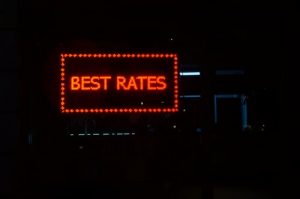If you are buying a home and have not saved at least 20% on the down payment, mortgage lenders want to protect themselves against risk if you cannot repay the loan. For this reason, borrowers should purchase mortgage insurance (FHA MIP) which protects the lender from a loss if a borrower is unable to repay the loan.
With a traditional loan, private mortgage insurance or PMI, you will be billed up to 1% or more of the loan amount each year until you have at least 20% of the equity in your possession. Loans insured by the Federal Housing Administration (FHA) also require mortgage insurance but work differently from PMI.
FHA loans are attractive to some buyers because they are associated with lenient loan requirements, low closing costs, and competitive interest rates. However, the additional costs of FHA mortgage insurance are a major drawback to this funding route.
What is FHA Mortgage Insurance (MIP)?
Like PMI, the FHA Mortgage Insurance Premium (MIP) is a supplement that you pay to protect the financial interests of the lender in the event of default on your loan. FHA borrowers must pay two FHA mortgage insurance premiums: in most cases in advance and annually during the repayment of your FHA loan.
How much does FHA mortgage insurance cost?
Here is an overview of the annual and prepaid mortgage insurance premium prices for FHA loans:
A prepayment mortgage insurance premium equal to 1.75% of the loan amount
Annual mortgage insurance premiums varying from 0.45 to 1.05% of the loan amount per year of the loan term
Prepayment premiums for mortgage insurance can and often are funded by the loan amount, says Peter Boomer, mortgage manager at PNC Bank. Annual mortgage insurance premiums differ from 0.45 to 1.05% of the loan amount per year of the loan term
Prepayment premiums for mortgage insurance can be funded by the loan amount, says Peter Boomer, mortgage manager at PNC Bank. Annual premiums are included within the borrower’s monthly mortgage payment. The monthly premiums for mortgage insurance are also determined by the term of the loan, whether it is an FHA loan of 15 or 30 years, and by the initial relationship between the loan and the value of the house. when the borrower requests the loan.
It is important to know that the initial FHA PEF will slightly increase the amount of your loan. For example, if you borrow $100,000 and cover the cost of the initial mortgage insurance on your loan, your loan amount increases to $101,750 (an additional 1.75% of the loan amount). Of course, this also increases your monthly payment. For a fixed-rate loan of $101,750 over 30 years with an interest rate of 4%, your monthly principal and your interests would drop from $477 to $ 486 or $ 9.
Once the annual bonus is included, your monthly payment will continue to increase. Adding the annual bonus to the above example would increase your monthly principal and interest payment by $72.07 per month and increase your total monthly payment to $558. Suppose you make a minimum down payment of 3.5%. In this case, an annual PMI of 0.85%.
How long does FHA mortgage insurance last?
One of the largest differences among a conventional PMI mortgage and FHA loan coverage is the fact that FHA loan insurance charges are not optionally available and in most cases can’t be paid. The traditional PMI can usually be withdrawn from a mortgage as soon as a homeowner can prove that he has 20% equity in his property. However, this does not apply to FHA mortgage insurance.
Although the law has changed more than once on this issue, current guidelines state that consumers who pay less than 10% on an FHA loan will need to purchase FHA mortgage insurance until the end of their loan. If you pay at least 10%, you can get rid of mortgage insurance after 11 years of payment.
Is the FHA mortgage insurance tax deductible?
Mortgage insurance premiums were previously tax-deductible, but this is no longer the case. The FHA MIP deduction expired in 2017.
The pros and cons of FHA mortgage insurance
Some of the benefits of FHA MIP are:
Bonuses are set. FHA mortgage insurance premiums do not fluctuate due to creditworthiness.
Simpler qualification requirements. FHA mortgage insurance helps borrowers who would not otherwise qualify for a traditional loan. The FHA can absorb more risk and therefore lend to less creditworthy borrowers.
Lower down payments. Borrowers with a credit score of 580 and above can only bet 3.5%. Those with FICO values between 500 and 579 can only fall by 10%.
some of the disadvantages of FHA mortgage insurance:
This insurance is added to the total cost of the loan.
The initial and annual mortgage insurance costs increase both the total loan amount and the monthly payment.
It is difficult to get rid of it. In general, there are few ways to pay for mortgage insurance: you can refinance a conventional loan or pay your mortgage in full.



